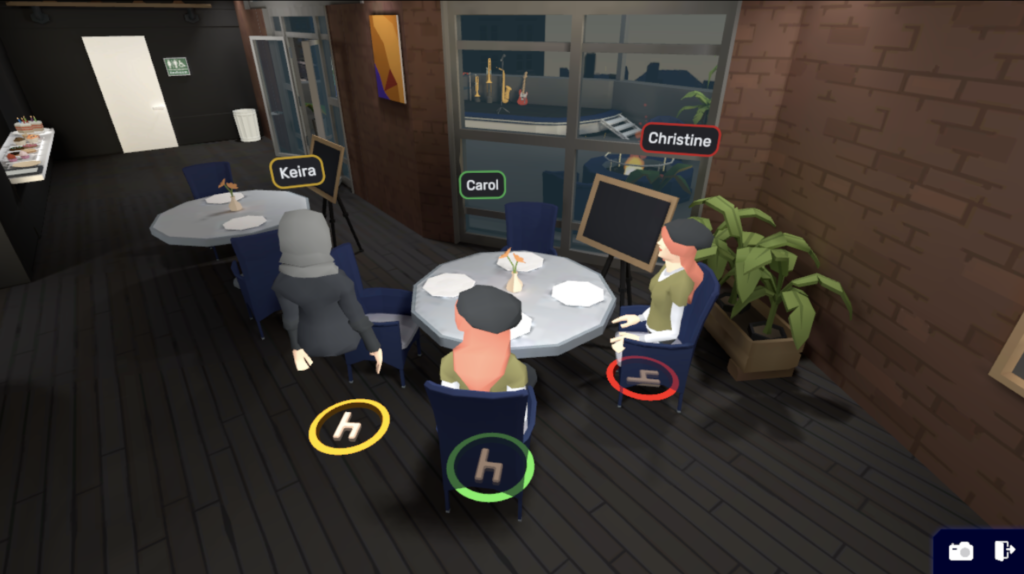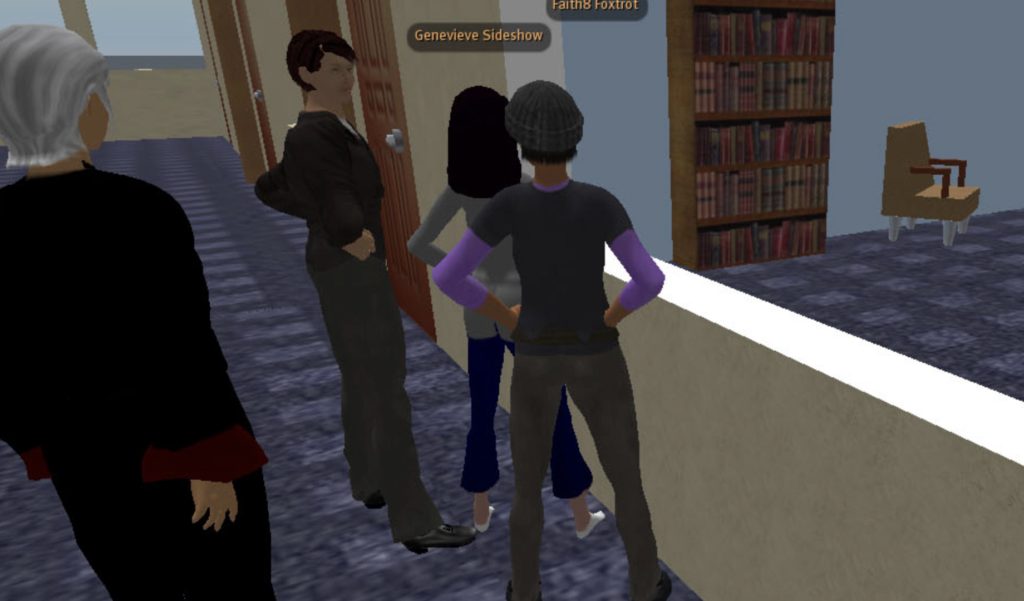Virtual reality (VR) can provide language learners with an authentic learning environment to improve their conversation skills. As an alternative to real-life settings, VR can allow students to engage in simulated learning environments in disciplines where a realistic environment is unavailable. It can promote learning through the simulation of different educational scenarios. As a result, learners are prepared for real-life situations or exposed to interactive learning that allows them to make choices and manipulate information.
In collaboration with Jiangsu University of Science and Technology in China, our research team is investigating whether speaking simulations in a VR environment Immerse can improve conversation skills and we are also trying to understand students’ perceptions of their experience with Immerse in speaking simulations for situated learning. The research findings indicate that students generally have a positive perception of their experience with VR-assisted speaking simulations for situated learning because VR-assisted learning experience provides authentic context, authentic activities, expert performance, multiple roles and perspectives, collaboration, reflection, articulation, coaching and scaffolding, and authentic assessment.


